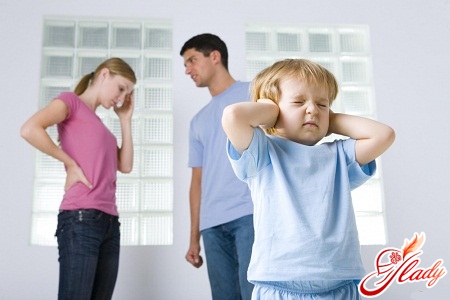 Unfortunately, even in modern life, whichis extremely rich in various incidents - criminal showdowns, accidents, natural disasters - sometimes there are events that can shock even the most experienced doctors and investigators. What can we say about the average person? Child suicide is one of such incidents. A child is the personification of the beginning of life, a large number of different roads and opportunities lie before him, he has yet to learn everything that life is ready to offer a person. Child death is perhaps the most absurd and tragic event that can only be imagined. But if you have to come to terms with and accept death from serious illnesses, willingly or unwillingly, then death as a result of suicide is always like a bolt from the blue. The minds of people around you simply refuse to accept this terrible reality - the voluntary departure from life of a child or teenager. Child suicide is something that can almost always be avoided. The main thing that is necessary for this is to notice the alarming signs in time. No child will decide to commit suicide and will implement their decision in a matter of hours. As a rule, such a decision matures in the child's head for more than one day, and not even a week. And all this time, the child desperately calls on adults, in various ways letting parents know that he is very bad. Attentive parents will never ignore the changed behavior of their chat. Below is a more detailed account of such aspects as the causes of child suicide, its prevention and psychological assistance to such children.
Unfortunately, even in modern life, whichis extremely rich in various incidents - criminal showdowns, accidents, natural disasters - sometimes there are events that can shock even the most experienced doctors and investigators. What can we say about the average person? Child suicide is one of such incidents. A child is the personification of the beginning of life, a large number of different roads and opportunities lie before him, he has yet to learn everything that life is ready to offer a person. Child death is perhaps the most absurd and tragic event that can only be imagined. But if you have to come to terms with and accept death from serious illnesses, willingly or unwillingly, then death as a result of suicide is always like a bolt from the blue. The minds of people around you simply refuse to accept this terrible reality - the voluntary departure from life of a child or teenager. Child suicide is something that can almost always be avoided. The main thing that is necessary for this is to notice the alarming signs in time. No child will decide to commit suicide and will implement their decision in a matter of hours. As a rule, such a decision matures in the child's head for more than one day, and not even a week. And all this time, the child desperately calls on adults, in various ways letting parents know that he is very bad. Attentive parents will never ignore the changed behavior of their chat. Below is a more detailed account of such aspects as the causes of child suicide, its prevention and psychological assistance to such children.
Age of children committing suicide
As statistics of teenagers showsuicides, as a rule, suicide attempts are not committed by children under 11 years old. But do not delude yourself and think that small children do not have a serious mental state. It is just that children do not yet fully understand what death is. However, often in their conversations and thoughts, loving and attentive mom and dad can notice a reason for concern. For example, a child psychologist told about such a case: a little girl of 7 years old repeated for a long time that she would turn into a butterfly and fly away from her parents. The parents only laughed at the funny children's threats. However, at the age of 12, this girl made a very serious suicide attempt, jumping from the 4th floor. Doctors miraculously managed to save her life. And if child suicide is, fortunately, quite rare, then the same cannot be said about teenage suicides. According to statistics, the peak of teenage suicides occurs at the age of 13-16. Many child psychologists are inclined to think that the desire for death is a fairly common reaction of the adolescent psyche to the emergence of a stressful situation. Moreover, mass suicides of adolescent children are not at all a rare phenomenon. On group suicides, when a group of children simultaneously or one after another commit the so-called "copied" suicide. The mechanism of such suicides is based on the tendency of adolescents to imitate and increased suggestibility of adolescents.
Children at risk
 It is a very common belief among people thatthat suicide attempts are committed only by mentally unstable people who suffer from various mental illnesses, such as schizophrenia, paranoia, and some other diseases of the nervous system. In fact, this is absolutely not true. The overwhelming majority of suicides are committed by absolutely mentally healthy people who are very clearly aware of their actions. As a rule, the reasons for suicide are purely personal reasons and experiences, problems that often seem absolutely insoluble to a teenager. Moreover, adults are often very surprised when they find out what pushed a child to such a step - the reason can be so insignificant that an adult would simply not pay special attention to it. For a child, it is global. Below are described those problems of teenagers that most often cause suicide among teenagers. Do not smile - believe me, for a child these are really serious problems:
It is a very common belief among people thatthat suicide attempts are committed only by mentally unstable people who suffer from various mental illnesses, such as schizophrenia, paranoia, and some other diseases of the nervous system. In fact, this is absolutely not true. The overwhelming majority of suicides are committed by absolutely mentally healthy people who are very clearly aware of their actions. As a rule, the reasons for suicide are purely personal reasons and experiences, problems that often seem absolutely insoluble to a teenager. Moreover, adults are often very surprised when they find out what pushed a child to such a step - the reason can be so insignificant that an adult would simply not pay special attention to it. For a child, it is global. Below are described those problems of teenagers that most often cause suicide among teenagers. Do not smile - believe me, for a child these are really serious problems:
- Quarrel with friends. And the quarrel can be because of an absolute trifle.
- Parting with a loved one or his betrayal. In adolescence, children are confident that the first love is forever and takes it very seriously.
- The death of one of close relatives.
- Frequent hit of the child in stressful situations.
- A complex psychological situation in the family - quarrels with parents, scandals of parents among themselves, their divorce.
- Prolonged depressed state of a teenager.
- Problems of the child with drugs. As a rule, narcotic dependence entails financial problems and problems with law enforcement agencies.
- Game addiction and dependence on the Internet.
- Violence in family. Often, a teenager considers himself guilty in what is happening and is afraid to tell adults about what is happening.
- Teenage pregnancy. Pregnancy teenage girl becomes a reason for suicide in about 21% of all cases.
Often, tragedy can be avoided.Prevention of child suicide often helps to avoid the worst thing - the death of a child. The main thing that is necessary for this is the attention of parents to changes in the child's behavior. Often, the first alarm bells can be mere trifles - a phrase dropped seemingly by accident, or something else. Always pay close attention to the following factors indicating that child and adolescent suicide is possible:
- Conversations of the child about suicide, unhealthy fantasies on this subject, emphasis on episodes of suicides in films, news.
- The appearance of the child's literature on suicides, viewing relevant information on the Internet.
- Attempts of the child to retire. The desire for solitude, the refusal to communicate does not always indicate a predisposition to suicide, but always speaks of the moral discomfort of the child.
- Talking and thinking of the child that heabsolutely nobody needs, that if he disappears, no one will look for him, and he will not even notice his absence. In no case do not leave such statements without attention and do not make fun of them. Try to find out the reason for this mood and convince the child of the opposite.
- Even music or painting can serve as a symptom for parents that something is wrong. Pay attention to what kind of music your child listens to.
- Carefully camouflaged attempts of the child to say goodbye to you - unusual conversations about love for you, attempts to finish all your affairs as quickly as possible.
- Giving your loved ones and most valuable things, with which he had never left, to his friends.
If there is anything wrong with the behavioryour child seemed strange or disturbing to you, immediately drop everything you are doing and try to spend almost all your time with your child until you are absolutely sure that your child’s suicidal mood has disappeared without a trace. If you are unable to cope with the existing problem on your own, do not hesitate and immediately seek help from child psychologists or even psychiatrists. Psychologists have also proven the fact, and parents need to remember this, that often teenagers attempt suicide not because they really want to die. The reason for such a suicide attempt is a banal desire to attract the attention of others, a kind of cry for help. For such children, cut veins or pills are just a kind of way to declare to the world the degree of their despair. However, very often such attempts to attract attention lead to disability, or even death of the child.
Indirect prerequisites for suicidal tendencies
 The above are signs that can often beindicate impending trouble. However, in addition to direct signs, child psychologists have identified groups of teenagers in which the risk of suicide is much higher than that of their peers. The distinctive character traits of such children are described below:
The above are signs that can often beindicate impending trouble. However, in addition to direct signs, child psychologists have identified groups of teenagers in which the risk of suicide is much higher than that of their peers. The distinctive character traits of such children are described below:
- Teens who do not know how to correctly formulate their thoughts, experiences, can not explain what they feel.
- The dual attitude of the adolescent and,accordingly, its behavior. On the one hand, a teenager does not feel like a child, adult emotions and feelings overwhelm him, he tries in every possible way to defend his independence. But at the same time, the teenager behaves like a child, completely dependent on the parents, both in the domestic and emotional terms. This contradiction deprives the child of peace of mind.
- Hyper pronounced teenage maximalism. The child is harsh in his judgments and assessments, both to others and to himself.
- Inability to analyze their actions and predict their consequences.
When examining a sufficiently large numberPsychologists have noticed one common feature in child and adolescent suicides: almost all children have a significant disruption of normal psycho-emotional connections with their families, and in girls, especially with their mothers. No matter how adult a teenager positions himself, the lack of mutual understanding and contact with the family can greatly aggravate all the child's experiences, making them especially acute and sometimes almost tragic. Parents should remember that not all deterioration of family relationships is due to the indifference and inattention of parents. If parents do not trust the child, refuse to accept him as an independent, fully formed person who has the right to his own opinion, worldview, life values and needs, family relationships can significantly worsen. Even if you do not directly tell the child about this, he will still subconsciously feel your mistrust and try to protest against the current state of affairs. And this process can take a variety of forms, including an attempt or, even worse, suicide itself. Teenage suicides are often a kind of protest. Listen very carefully to what your child says. Sometimes such a trivial statement, thrown out in the heat of the moment during an argument, as "I don't want to see you!" can serve as an alarm signal. In the same case, if the child allows himself more serious threats, for example, such as: "I will cut my veins" or "I will jump out of the window", in no case make the most common mistake - provocative reactions. In no case laugh at the child and do not say that no one will interfere with him. Very often, children who talk about suicide with the sole purpose of angering or blackmailing their parents, having received such an ironic reaction in response, out of a sense of stubbornness and a desire to prove to their parents that they are wrong, decide to commit suicide. Of course, it is quite understandable that behind their evil irony and ostentatious, feigned indifference, parents are trying to disguise a chilling fear of the possibility of suicide. And also many parents, accustomed to their children always following their instructions exactly the opposite, will not change their principles this time and will never decide on such a desperate step as suicide. But it is absolutely necessary to take into account that the child does not know that your words and reaction are nothing more than a pedagogical trick. He can take the doubt in your voice personally and try to prove his determination to you by any means, even such a terrible one as suicide. And your words, which exude feigned coldness and indifference, the child can perceive as confirmation and proof that he is absolutely not needed by anyone, not even his parents.
Actions of parents when attempting suicide
If it was still not possible to prevent the misfortune,and the child has attempted suicide, parents must take a set of urgent measures. Of course, your first feeling will be fear and relief that the child's life was saved. Do not hide your feelings from the child under the mask of indifference and especially anger. The child must feel that you love him very much and cherish him. After the child's health has stabilized, you will definitely need to seek help from psychologists. In no case should you neglect the help of professionals - it is often almost impossible to cope with the problem on your own. In the event that doctors deem it necessary to place your child in a specialized rehabilitation center, do not refuse under any circumstances. Remember that your child attempted suicide for a reason, which means that he may repeat it if the cause is not identified and eliminated. Although, in fairness, it should be noted that, as statistics show, child suicide is a solitary affair. Repeated suicide attempts in adolescence are extremely rare - no more than one in 600 cases. However, this is still no reason for parents to relax their attention and control over the emotional state of a child in trouble. Often, adults, mature people are far from always able to cope with their own emotions. Not to mention the fragile psyche of a teenager. In the same case, if the child's hospitalization is not required, most of the responsibility for the rehabilitation of the child's health falls on the shoulders of the parents. Do not conflict with the child under any circumstances, do not blame him for anything. Try to understand your child, empathize with his situation and help him. If the child feels your help and support, he will certainly not try to commit suicide anymore.
If there was a trouble
 In the event that a disaster occurs and the childvoluntarily passed away, parents cannot accept this fact and come to terms with what happened for a long time. However, time, as trite as it may sound, heals and sooner or later parents will gain the ability to analyze what happened. They will have a huge number of different questions, the meaning of which comes down to only one - "Why?!" What exactly led their child to make such a fatal decision? And almost all parents eventually come to one sad conclusion: they did not watch closely enough somewhere, did not see the alarming signals, did not pay attention to the approaching disaster. Of course, realizing this fact is a very difficult process. Along with it comes a terrible, tormenting, exhausting feeling of guilt. The life of parents turns into sheer hell. However, often not only the life of the parents turns into hell, but also the life of the whole family, which very often has another child. And this child is forced to constantly be in a stressful situation, and often with a feeling of indifference to himself. Unfortunately, this happens quite often - parents, blinded by grief and guilt, stop taking proper care of their second child, often simply ceasing to notice him. Of course, parents should not be blamed for this - their mental state leaves much to be desired and they themselves need professional psychological help. You should not neglect the services of a psychologist - after all, your life, no matter how cynical it may sound, did not end with the death of your child. And your second baby depends on you - he vitally needs your support and love. Otherwise, there is a risk of repeating a terrible tragedy, which you are unlikely to survive again. A child's life is the most fragile and most precious miracle that fate gives to people. And how happy and long it will be often depends on many. We recommend reading:
In the event that a disaster occurs and the childvoluntarily passed away, parents cannot accept this fact and come to terms with what happened for a long time. However, time, as trite as it may sound, heals and sooner or later parents will gain the ability to analyze what happened. They will have a huge number of different questions, the meaning of which comes down to only one - "Why?!" What exactly led their child to make such a fatal decision? And almost all parents eventually come to one sad conclusion: they did not watch closely enough somewhere, did not see the alarming signals, did not pay attention to the approaching disaster. Of course, realizing this fact is a very difficult process. Along with it comes a terrible, tormenting, exhausting feeling of guilt. The life of parents turns into sheer hell. However, often not only the life of the parents turns into hell, but also the life of the whole family, which very often has another child. And this child is forced to constantly be in a stressful situation, and often with a feeling of indifference to himself. Unfortunately, this happens quite often - parents, blinded by grief and guilt, stop taking proper care of their second child, often simply ceasing to notice him. Of course, parents should not be blamed for this - their mental state leaves much to be desired and they themselves need professional psychological help. You should not neglect the services of a psychologist - after all, your life, no matter how cynical it may sound, did not end with the death of your child. And your second baby depends on you - he vitally needs your support and love. Otherwise, there is a risk of repeating a terrible tragedy, which you are unlikely to survive again. A child's life is the most fragile and most precious miracle that fate gives to people. And how happy and long it will be often depends on many. We recommend reading:









